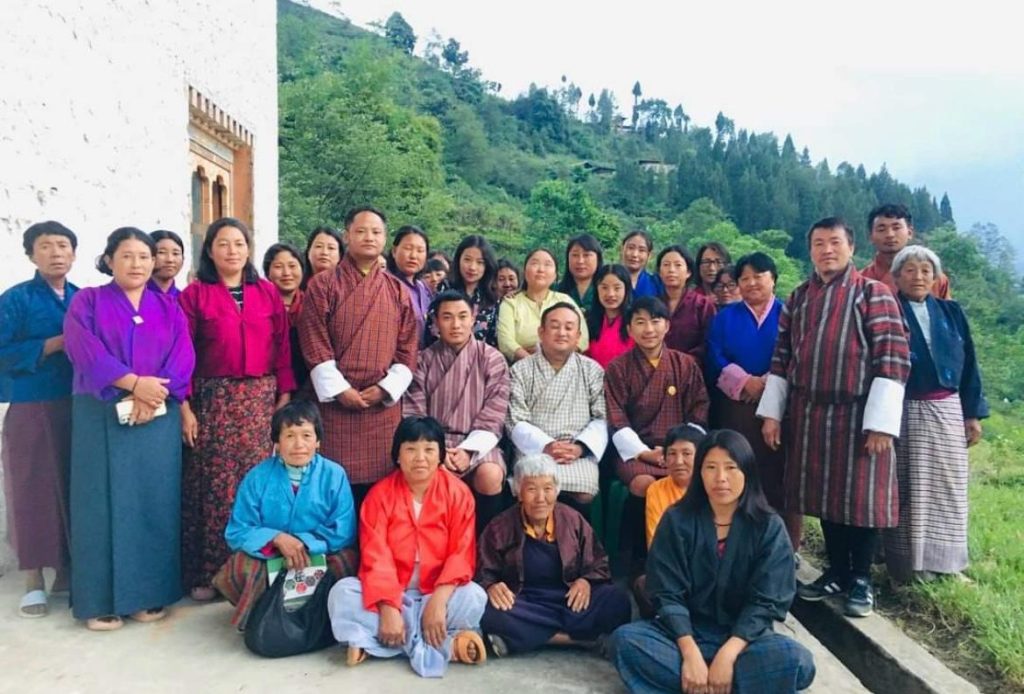Samcholing Tea Cooperation
Experience the wonderful taste of Bhutan through Samcholing Tea. From our pristine Himalayan tea fields to your cup, every sip tells a story of tradition, purity, and sustainability. Discover the unique flavors and rich heritage that make our tea truly special.
Are you interested in buying (mainly wholesale) of selling our teas? Contact us by email!
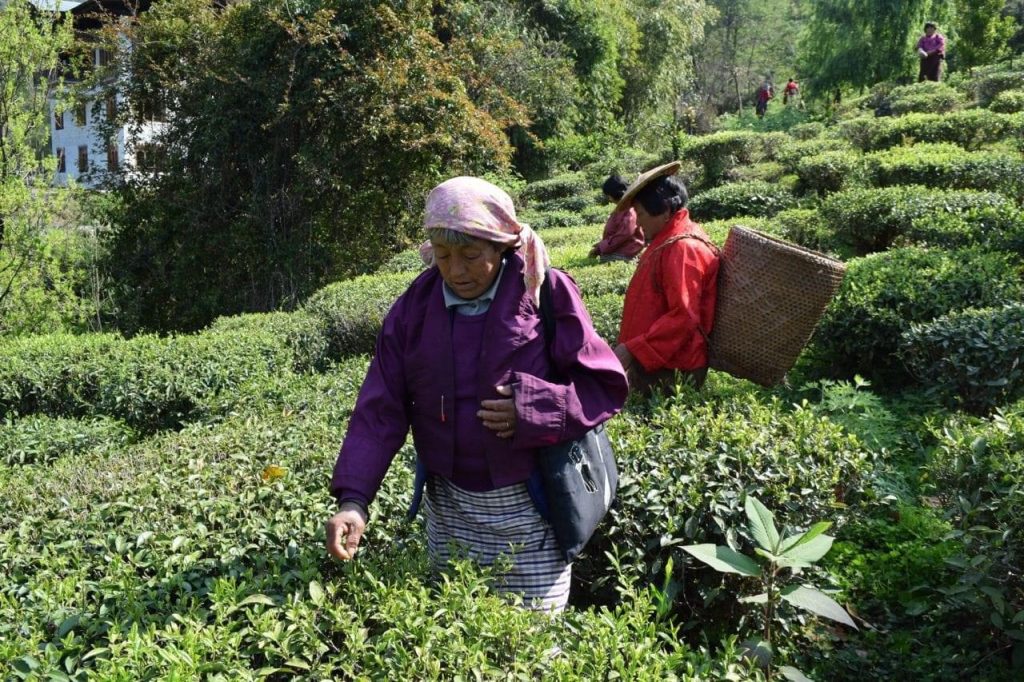
Our Story
Welcome to Samcholing Tea, a unique cooperation of small scale tea farmers with a micro factory, located in the picturesque village of Samcholing in Bhutan’s Trongsa district. This serene area is set in the heart of the Himalaya’s last remaining kingdom.
In this isolated corner of the world, successful development is measured by the concept of Gross National Happiness. Deeply rooted in Buddhism, Bhutan’s values emphasize mindfulness, compassion, and respect for all living beings. Its serene and unhurried way of life is reflected in the total absence of traffic lights.
Our story starts in the early 1950s, when Bhutan’s second king, His Majesty Jigme Wangchuck (1905 – 1952), planted Darjeeling tea seeds around his summer palace in Samcholing. These seed grew into bushes and trees, and were only for decoration.
In the 1990s seeds from these plants were planted in neighboring fields. However, only from 2011 onwards the potential of these plants, to be processed into delicious tea, was really recognized. With support from the Royal Government of Bhutan (Ministry of Agriculture) and the Korean International Cooperation Agency, the local community learned the art of producing green tea. This lead to the establishment of the Samcholing Tea Cooperation.
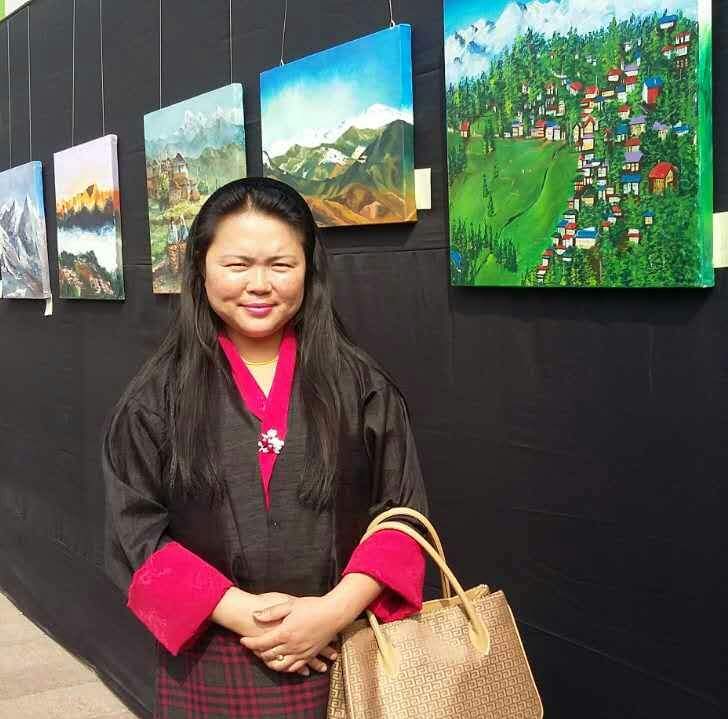
“Our tea is a gift from Bhutan’s second King to our community, nurtured by the Himalayas’ natural beauty and pureness. We are very thankful for this precious heritage.”
Rinchen Lhamo
Chairman Samcholing Tea Cooperation
Our Tea Fields
Today, our plantation spans approximately 80 hectares, is elevated at 1800 meter above sea level, and is managed by a collective of more than 30 dedicated women. This tea is organically grown, handpicked, and processed in the pristine environment of the high Himalayas, with a strong focus on quality and sustainability.
The main objective of the tea growers’ cooperation is to empower the local women and to promote equal income. By buying Samcholing tea, you contribute to a sustainable livelihood for these women and their families, while preserving the rich cultural heritage of Bhutan.
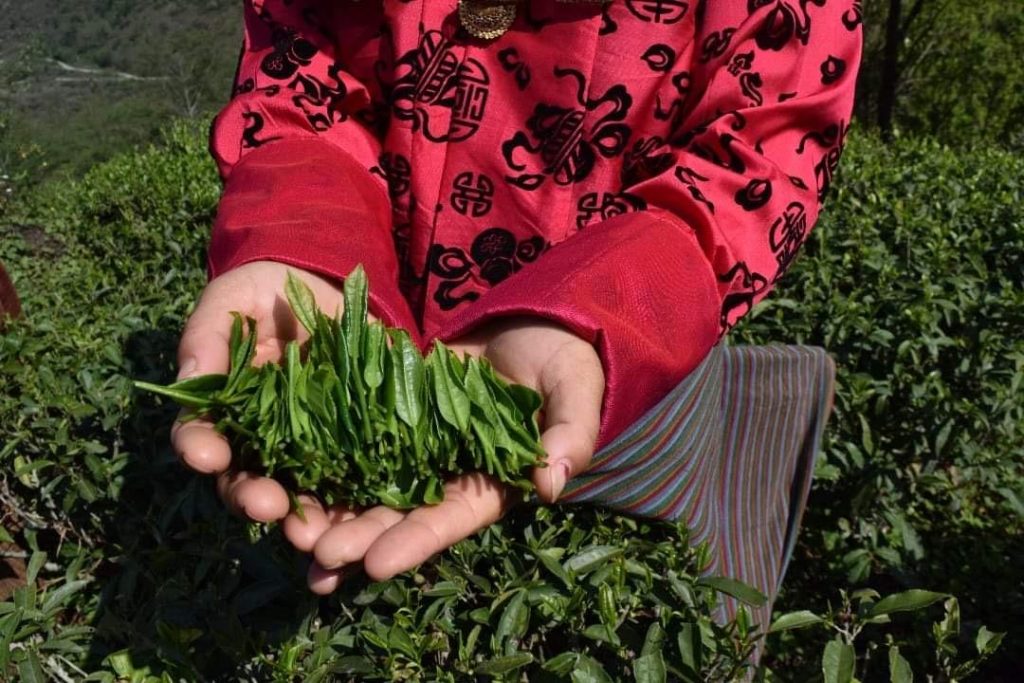
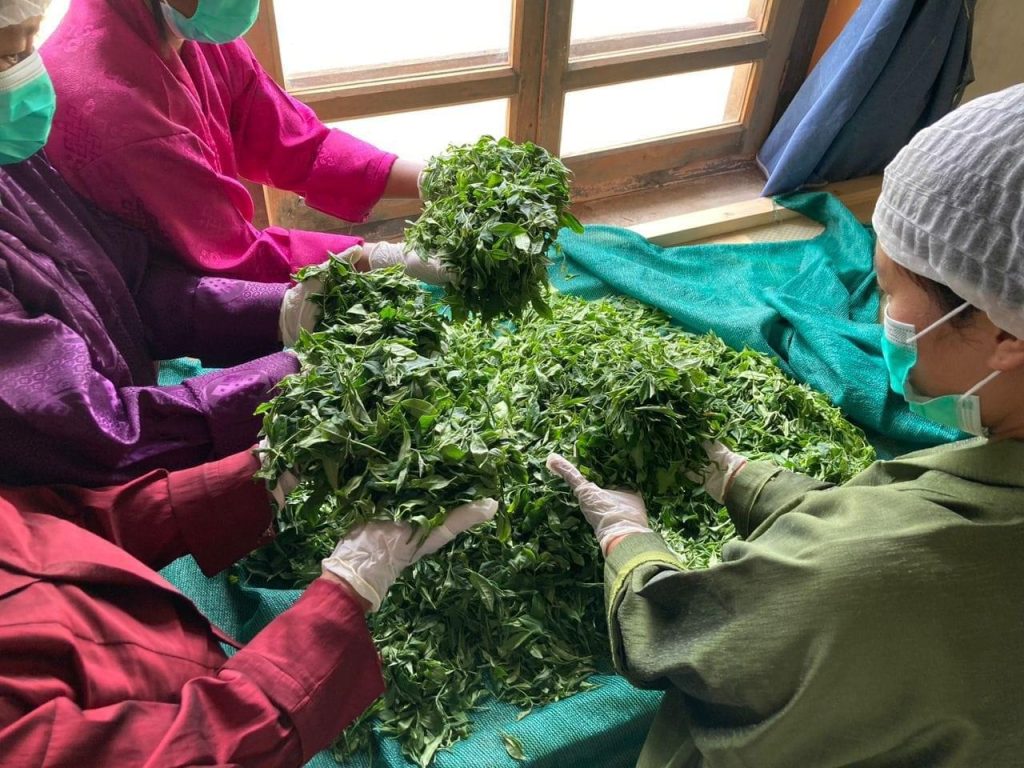
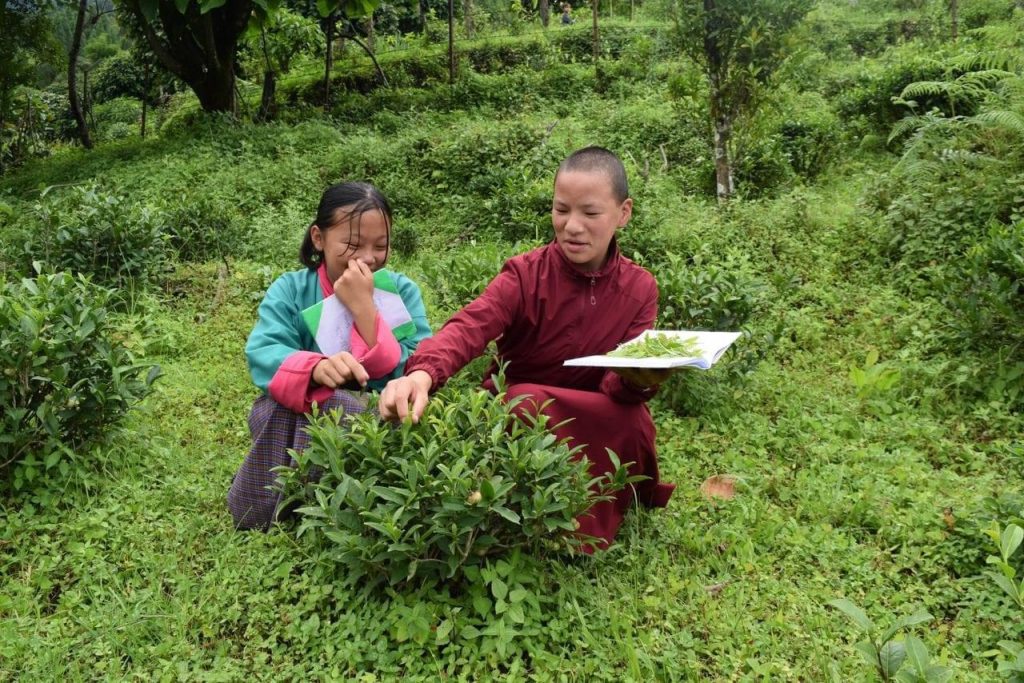
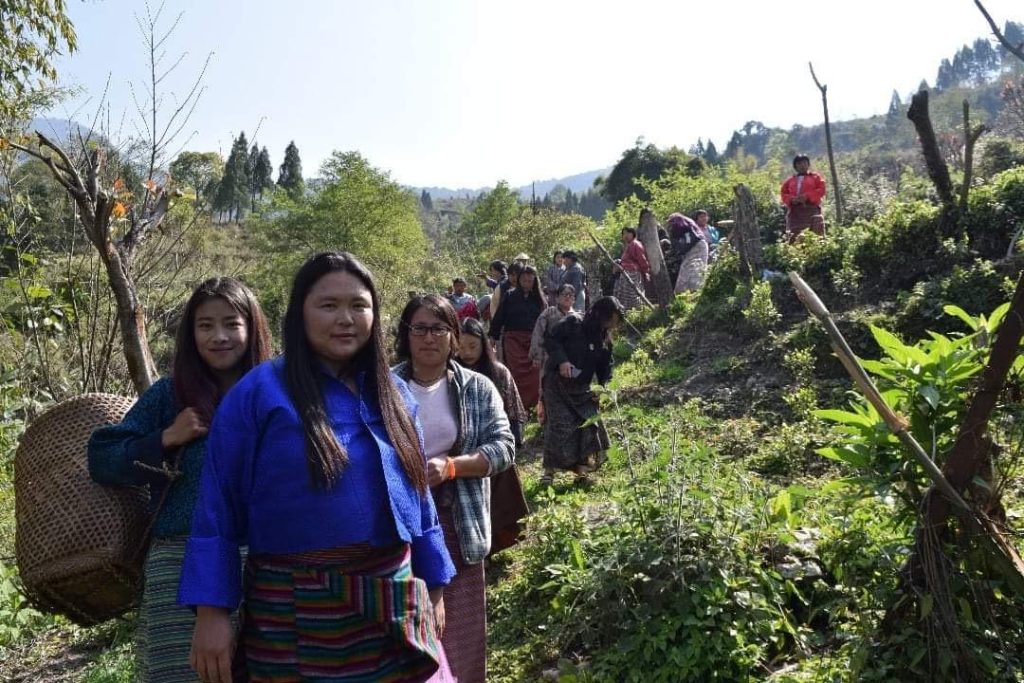
Our Teas
Discover our different types of tea and experience the soul of Bhutan in every sip. Cultivated in the cool mountain climate of Bhutan’s Trongsa district, our teas reflect the essence of this unique terroir.
Samcholing Tea is more than a drink: it is a connection to the untouched beauty and traditions of Bhutan. Whether enjoyed in a serene moment alone or shared with friends, each cup offers a taste of nature’s purity and the heart of our community.

Our Green Tea
Our signature green tea is celebrated for its bright and refreshing character. Each sip unveils sweet, vegetal notes, balanced by a delicate floral aroma. The harmonious combination of these flavors creates a soothing experience that transports you to the tranquil hills of Samcholing.
Our Black Tea
In addition to our renowned green tea, we also produce black tea, characterized by a rich, full-bodied flavor and complex aromas. Bhutan Samcholing Black Tea offers notes of honey, dried fruits, and a delicate hint of spices, delivering a warming and refined tea experience.
Our Oolong Tea
Our oolong tea is known for its nuanced flavors and fragrant aroma. With its smooth, medium-bodied taste, it unfolds layers of toasted nuts, ripe stone fruits, and subtle floral notes, finishing with a hint of natural sweetness. The complexity and balance of these flavors make every cup a journey of discovery.
Our Suja Butter Tea
Suja is Bhutan’s traditional butter tea, made by mixing tea with yak butter and salt. It’s a popular drink in Bhutan, known for its warm and energizing taste. People often enjoy it during gatherings or to stay warm in the cold Himalayan weather.
The tea leaves used for making suja undergo fermentation, making it different from green, black or oolong tea. The result is a tea with a more robust, earthy taste, perfectly suited for blending with butter and salt to create the distinctive suja flavor.
Fermenting the tea leaves is a traditional production method that reflects Bhutan’s unique tea-making culture, resulting in a truly authentic taste.
Our Quality Standards
Hygiene and quality control is key in our production process. Before entering the production facility, everyone must wash their hands and feet and wear masks, aprons, and caps. Such strict practices are essential to guarantee the tea’s quality and safety for both local and international consumers. We aim to uphold the highest standards of cleanliness.
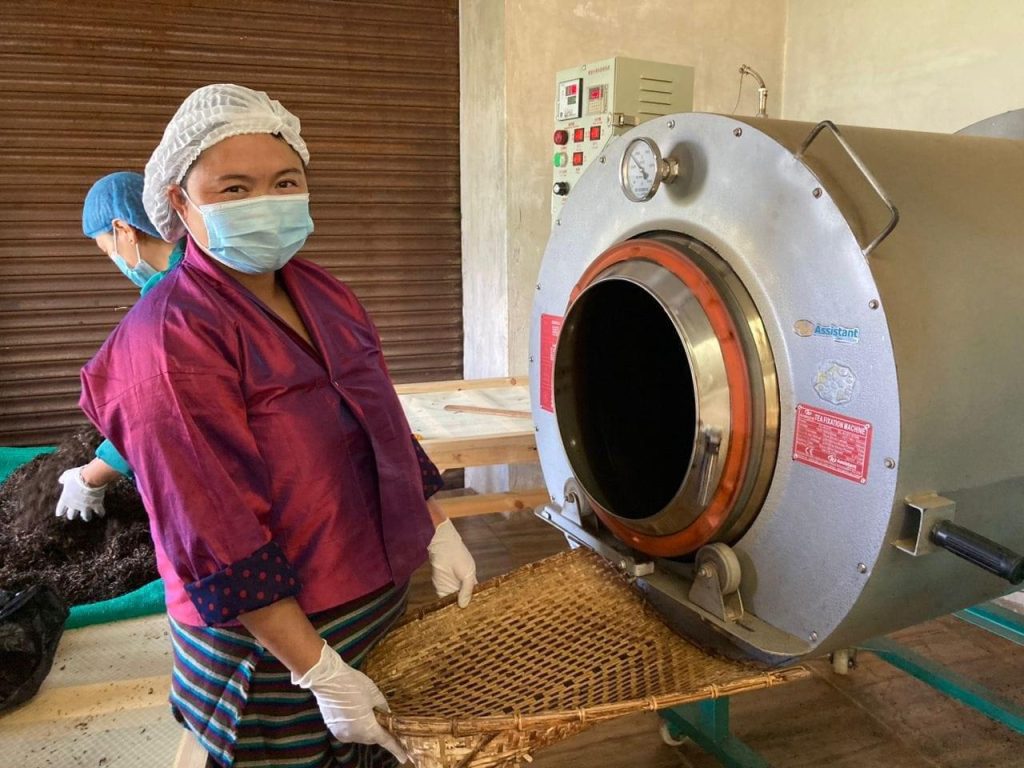
Contact Us
Are you interested in buying (mainly wholesale) of selling our teas? Contact us by email!
